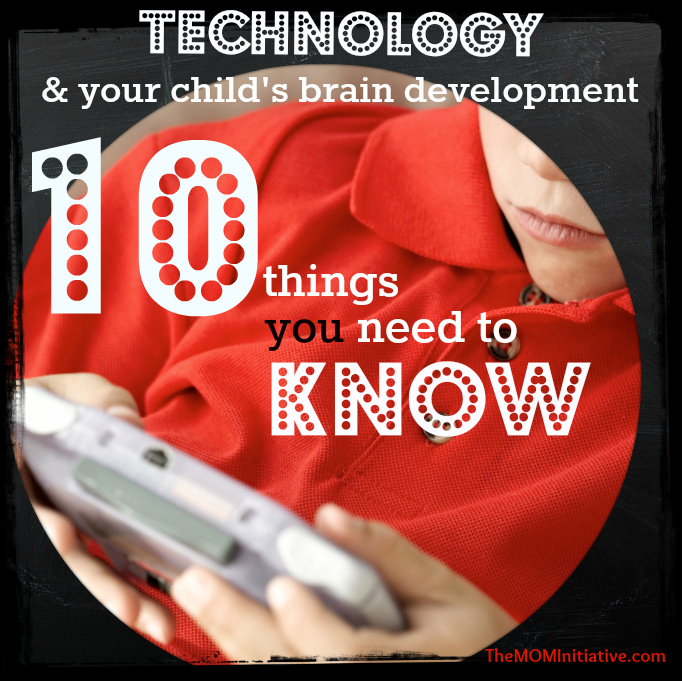Our kids will never know what it is to live in an unwired world. We’ve moved from the technology of the light bulb to the microwave, to the CD player, to the answering machine, and now to the mobile phone. Just doing homework research opens Pandora ’s Box of distractions like YouTube and Facebook, for starters. Today, moms find it hard to imagine what kind of tech will be commonplace to our kids when they grow up. Some parents feel overwhelmed by the waves of change and try to shut out the digital invasion.
When adults check out, kids miss out on the guidance and shepherding needed in a world that knows no boundaries for introducing images and ideas into the minds and hearts of our kids.
As children interface with today’s tech, it’s having an impact on their brain development. Wise moms want to know what’s on the FAQL (that’s text lingo for “Frequently Asked Questions List”) when it comes to tech changing the way we think and relate. Here are 10 things we need to know about technology and how it’s impacting the brain development of our children.
10 Things you need to know about tech & your kids
- Children are not born with language proficiency. In place of interaction with people, excessive engagement with tech may hinder healthy cognitive social skills.
- Infants grasp who and what they are through interaction with and observation of care givers; this includes other people as they grow. Screen feedback is not an adequate substitute.
- As children use technology for learning, they grow in their ability to process greater amounts of information and to do comparative analysis.
- 73% of negative actions in video games have an absence of consequences; children may have an underdeveloped sense of cause/effect relationships and how choices impact outcomes.
- Electronic gaming creates a false sense of the passage of time, making it difficult for children to know how activity progresses and how to pace themselves.
- When infants or small children receive high levels of exposure to tech, motor function development is delayed. Why? With less experience gained through their senses, they collect fewer memory associations to support motor ability growth.
- If tech time routinely takes the place of physical play, children may lack an understanding of symbolic information necessary for strong math and reading skill development.
- Studies show excessive participation in social media may lead to a child’s more egocentric view of the world, leading to an underdeveloped sense of empathy and compassion for others.
- Despite new horizons available to children technologically, overall, kids demonstrate less of an interest in nature, human service, and exploration than children did 20 years ago.
- Attachment to technology is becoming a more widely diagnosed mental health issue for children. Growing evidence shows the neurochemical dopamine increases as in addictions to alcohol and drugs.
This isn’t the first time that something good can also be bad (Gen. 50:20). The growth of our kids’ hearts and minds is too important to just plug them in and let them go. Back in September, Arlene Pellicane gave us some help in setting a smart tone for media in our homes. Let’s be wise moms with our eyes wide open to the benefits and dangers of technology in the lives of our kids.
How do you see technology impacting your child, good and bad?
(*The source for much of today’s info was Dr. T. Perry’s presentation Technology and the Brain Development of Children for educators, law enforcement and social workers.)
- Election Day and empowering, enduring truths for moms - November 8, 2016
- Loving People: How Moms can Make Life a Lesson in Loving - October 11, 2016
- A Child’s Heart and the Hidden Treasure of Talking Back - September 13, 2016


